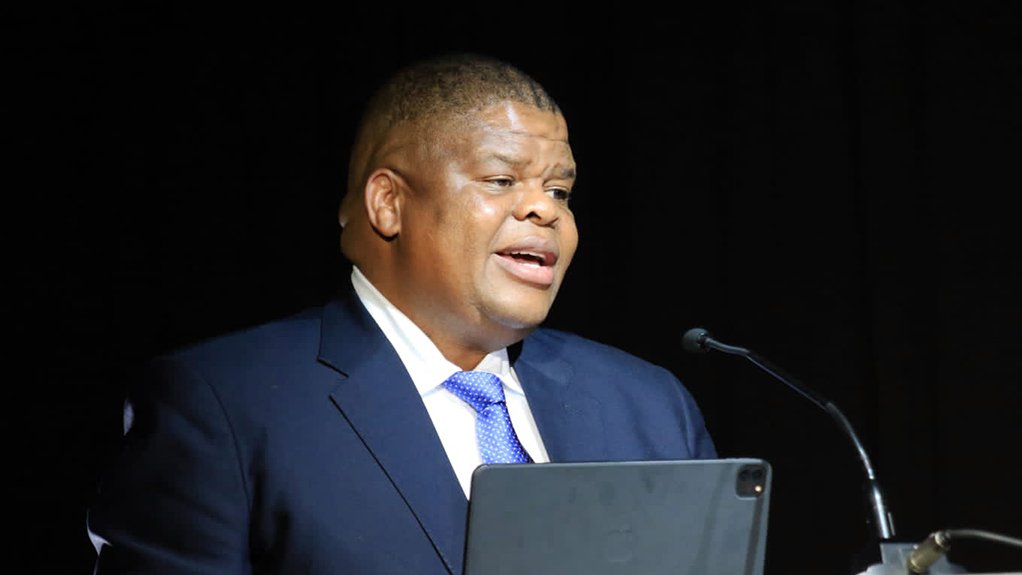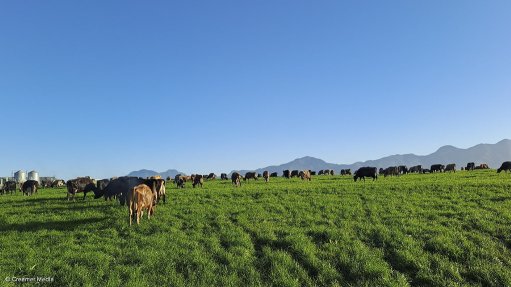Polihali contractor back at work after suspension, LHWP project cost escalations, delays in spotlight
As the contractor responsible for the Polihali transfer tunnel construction resumes work on Tuesday following the acceptance of its proposed remedial measures over pollution, the delays, escalating costs and disputes surrounding the overarching Lesotho Highlands Water Project (LHWP) Phase II have come into focus.
In May, the contractor, Kopano Ke Matla, was suspended on site by implementing agent the Lesotho Highlands Development Authority (LHDA) after several warnings on non-compliance were issued for allegedly polluting water courses with raw effluent.
The contractor was issued with a compliance deadline of May 26 to provide a remedial plan and a compliance roadmap with clear and measurable milestones and interim controls to address the deficiencies in wastewater treatment works.
On Friday, the project’s engineer accepted the contractor’s interim measures, supplemented by a comprehensive remedial plan, and subsequently issued a letter lifting the suspension, subject to conditions that there will be full implementation of the proposed remedies, said South African chief delegate to the Lesotho Highlands Water Commission (LHWC) Teboho Nkhahle.
By Tuesday, the 1 300 workers who were temporarily laid off resumed work.
This emerged during Department of Water and Sanitation (DWS) discussions with the Portfolio Committee on Water and Sanitation in Parliament over the extensive delays and escalating of the long-standing, critical water project.
Water and Sanitation Deputy Minister David Mahlobo on Tuesday told the committee that escalating costs and delays were a concern, as the project’s estimated expenditure has surged from an initial R8-billion to over R53.3-billion, driven by delays, inflation and management failures.
When the LHWP was initially supposed to start in 2011, with completion set for 2019, the costs implications had doubled to R16.86-billion.
In 2021/22, the DWS was re-established as a standalone ministry, which enabled an acceleration of the project, he said. In October 2022, the DWS started to work with the teams and award contracts, with plans for completion in 2028 – with a revised cost of R42.06-billion.
Further revised estimates show that the costs will rise to R53.3-billion, driven by rising input costs, including fuel, steel and labour, as well as contingencies.
“We are worried around the issues of cost escalation, some of which is around contingencies. We want to arrest that.”
The delays also remain a significant concern. While there has been good progress on some aspects of the project, with much work completed, other components have not progressed to where they need to be.
This highlighted issues of underperformance of some contractors as a matter of concern, as many days have been lost, Mahlobo commented.
The revised delivery programme received indicates water delivery by August 2028, with total project close-off by September 2030, and dam and civil works completion by 2029.
There is a need for an acceleration plan to reclaim the time that has been lost and stabilise the project.
“We have directed that we need a reclamation plan,” he said.
Nkhahle added that the LHWC has resolved to appoint a multidisciplinary team to conduct a management audit of all “problematic” contracts to “get to the bottom” of the delays and cost escalations. With the terms of reference approved, work on this is set to start in due course.
During the discussions, other matters arose, including a dispute between South Africa and Lesotho over the feeder roads maintenance, matters of appointments, oversight and compliance gaps.
The LHWP Phase II has featured in many high level discussions between the two countries, including during the second session of the Bi-National Commission (BNC) held in Maseru, Lesotho, with Lesotho Prime Minister Samuel Ntsokoane Matekane and South African President Cyril Ramaphosa presiding.
The BNC aims to foster strong political relations between the two countries; deepen economic cooperation, taking into consideration regional value chains; review the implementation of the outcomes of the BNC’s inaugural session held two years ago; and agree on newly identified priority areas for mutual benefit.
The Portfolio Committee on Water and Sanitation also conducted an oversight visit to the site in Lesotho.
South African Water and Sanitation Minister Pemmy Majodina and Lesotho Natural Resources Minister Mohlomi Moleko have further discussed a number of challenges and have agreed to tighten oversight, with meetings required on a quarterly basis, along with more continuous reports from the LHWC, the LHDA and the Trans-Caledon Tunnel Authority (TCTA).
Majodina directed the South African delegation in the LHWC, along with the TCTA and the DWS, to reinforce stringent monitoring.
Further, in line with this, the treaty will be reviewed, as requested by Lesotho, with reflections on how to strengthen it, said Mahlobo, who outlined that it is not the first review, but rather the seventh of the founding document.
The proposed review will be a multi-department consideration, and will include Majodina, South Africa’s Electricity and Energy Minister Dr Kgosientsho Ramokgopa, as well as the BNC and the Department of International Relations and Cooperation.
“We have assigned a working team [on a technical level] to determine parameters required for a review,” Mahlobo said. No timeline has been provided on the start of the review or duration.
The fundamentals will not change, but rather any review must take into consideration improving transparency, accountability, oversight and efficiency.
“The changing global balance of forces and its impacts will also be included. When we review the treaty, we have to look at the current economic reality, including, for example, the US policy decision to impose tariffs, wherein our economic situation will change.
“It will have a reflection on the current economic, environmental and developmental issues.”
Article Enquiry
Email Article
Save Article
Feedback
To advertise email advertising@creamermedia.co.za or click here
Press Office
Announcements
What's On
Subscribe to improve your user experience...
Option 1 (equivalent of R125 a month):
Receive a weekly copy of Creamer Media's Engineering News & Mining Weekly magazine
(print copy for those in South Africa and e-magazine for those outside of South Africa)
Receive daily email newsletters
Access to full search results
Access archive of magazine back copies
Access to Projects in Progress
Access to ONE Research Report of your choice in PDF format
Option 2 (equivalent of R375 a month):
All benefits from Option 1
PLUS
Access to Creamer Media's Research Channel Africa for ALL Research Reports, in PDF format, on various industrial and mining sectors
including Electricity; Water; Energy Transition; Hydrogen; Roads, Rail and Ports; Coal; Gold; Platinum; Battery Metals; etc.
Already a subscriber?
Forgotten your password?
Receive weekly copy of Creamer Media's Engineering News & Mining Weekly magazine (print copy for those in South Africa and e-magazine for those outside of South Africa)
➕
Recieve daily email newsletters
➕
Access to full search results
➕
Access archive of magazine back copies
➕
Access to Projects in Progress
➕
Access to ONE Research Report of your choice in PDF format
RESEARCH CHANNEL AFRICA
R4500 (equivalent of R375 a month)
SUBSCRIBEAll benefits from Option 1
➕
Access to Creamer Media's Research Channel Africa for ALL Research Reports on various industrial and mining sectors, in PDF format, including on:
Electricity
➕
Water
➕
Energy Transition
➕
Hydrogen
➕
Roads, Rail and Ports
➕
Coal
➕
Gold
➕
Platinum
➕
Battery Metals
➕
etc.
Receive all benefits from Option 1 or Option 2 delivered to numerous people at your company
➕
Multiple User names and Passwords for simultaneous log-ins
➕
Intranet integration access to all in your organisation





















